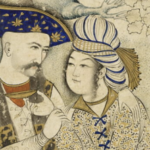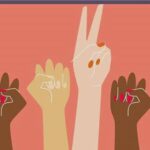Vorstand Fachverband Homosexualität und Geschichte e.V., Elena Barta, Michael Schön, Martin Sölle, Karl-Heinz Steinle (Web)
Zeit: 11.10.2025
Ort: Pavillon der Sozialdemokrat*innen im Grazer Volksgarten, Graz
Einreichfrist: 30.04.2025
Zur Jahrestagung des Fachverbands Homosexualität und Geschichte (FHG) laden die Veranstalter:innen in diesem Jahr nach Graz/Österreich ein und freuen sich sehr, dass sie dabei von der Stadt Graz unterstützt werden. Der öffentliche Teil der Jahrestagung wird als ganztägige Fachtagung stattfinden. Die Veranstalter:innen möchten die diesjährige Jahrestagung erneut dem Themenfeld der (queeren) Erinnerungskultur widmen. Als Vortragsdauer sind 30 Minuten mit anschließender Diskussion vorgesehen. Für die Vortragenden sind Honorarzahlungen und die Erstattung von Hotel- und Fahrkosten vorgesehen. Die Vortragstexte werden als Beiträge für die vereinseigene Fachzeitschrift „invertito. Jahrbuch für die Geschichte der Homosexualitäten“ angefragt werden.
Aufruf zur Einreichung von Beiträgen (PDF)
Gedenken hat einen hohen Stellenwert im öffentlichen Diskurs und Handeln. Erst in den letzten Jahrzehnten haben sexuelle und geschlechtliche Identitäten jenseits der Heterosexualität einen Raum und festen Ort in der Gedenkkultur gefunden. Oft wurden diese angeregt und/oder erstritten von lokalen Geschichts-Initiativen und häufig erst nach langen Diskussionen umgesetzt.
Für die Vortragsthemen der Jahrestagung können konkrete Gedenk-Projekte in den Blick genommen werden: Solche, die umgesetzt wurden wie z.B. 1994 der „Frankfurter Engel“ in Frankfurt/Main, 1995 das „Mahnmal für die lesbischen und schwulen Opfer des Nationalsozialismus“ in Köln, 2008 das „Mahnmal für die im Nationalsozialismus verfolgten Homosexuellen“ in Berlin oder die „Gedenkkugel“ der Initiative „Autonome feministische Frauen und Lesben aus Deutschland und Österreich“ als Gedenkzeichen an lesbische Frauen im KZ Ravensbrück im Jahr 2022 oder das jüngste „Denkmal für Männer und Frauen, die Opfer der Homosexuellen-Verfolgung in der NS-Zeit wurden“ 2023 in Wien. Insbesondere interessiert auch die Auseinandersetzung mit Projekten in Planung wie das „Projekt Gedenkzeichen in Graz“. Continue reading

 Binghamton University’s Center for Medieval and Renaissance Studies (CEMERS)
Binghamton University’s Center for Medieval and Renaissance Studies (CEMERS)  Frauen- und Geschlechtergeschichte in Österreich – Newsletter #01 für 2024
Frauen- und Geschlechtergeschichte in Österreich – Newsletter #01 für 2024 Department of American Studies at the Univ. of Innsbruck; Ben Robbins, Devon Anderson, and Matthias Klestil
Department of American Studies at the Univ. of Innsbruck; Ben Robbins, Devon Anderson, and Matthias Klestil  Journal „Kvinder, Køn & Forskning|Women, Gender & Research“; Univ. of Copenhagen
Journal „Kvinder, Køn & Forskning|Women, Gender & Research“; Univ. of Copenhagen  Intercontinental Cross-Currents Network; Inês Tadeu, Univ. of Madeira and Julia Nitz, Martin Luther Univ. Halle-Wittenberg
Intercontinental Cross-Currents Network; Inês Tadeu, Univ. of Madeira and Julia Nitz, Martin Luther Univ. Halle-Wittenberg  Jahrbuch für Internationale Germanistik
Jahrbuch für Internationale Germanistik